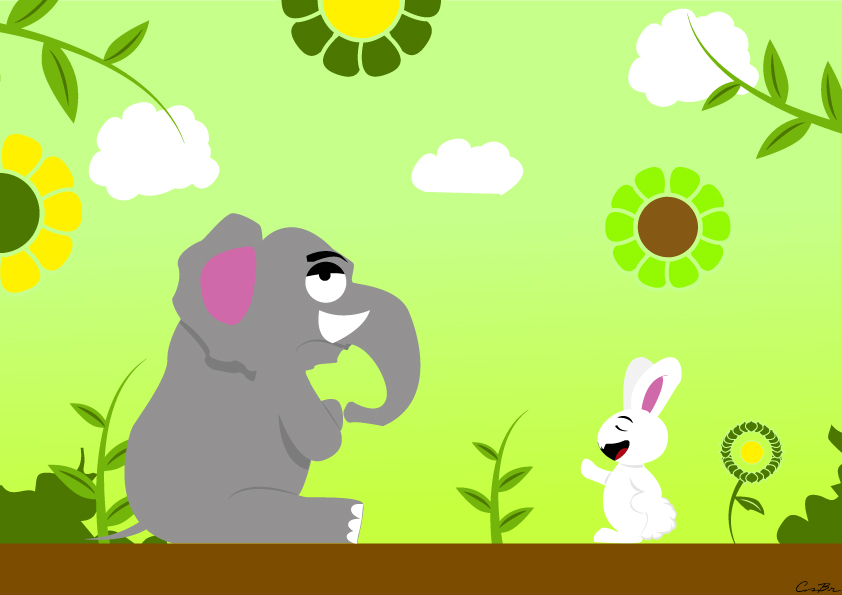Panangokhala, (Once upon a time)
Tili tonse
Panali mtsikana wina wake, (There was a certain girl)
Tili tonse.
Nde mtsikana uja anali wokongola kwambili (Now this girl was very beautiful)
Tili tonse
Anyamata ammudzimo amafuna kumanga naye banja (The young men in the village wanted to marry her)
Tili tonse.
Ndiye iye uja, akamufunsila (but whenever a young man asked for her hand in marriage)
Tili tonse
Amakana. (She would refuse)
Anthu kumabwela kwao (People would come to her home)
Kuzamufunsila, (To propose to her)
Iye uja kumakana, (and she would refuse)
Ali mamuna amene ndikufuna siameneyo. (saying, ‘That’s not the man I want).
Ndiye kenako anthu aja anatopa. (So people gave up on her.)
Tsiku lina kunabwela mamuna, (One day, a man came to the village)
Tili tonse
Atatchena, (Oh, he was well-dressed)
Wavala suti yake, (he had on a suit)
Magalasi ake, (glasses)
Nthawi imeneyo kunali fashion yoenda ndi kandodo mmanja (In those days, it was trendy to carry a cane)
Mammunayu ananyamula kandodo kake. (This man carried a cane)
Mtsikana uja kuthala maso,(When the young woman cast her eyes upon him)
Ali mamuna ndikafuna ine uja si uyu?! (She said, ‘Is this not the man I’ve been waiting for ?!’)
Anthu m’mudzi muja ali, ‘Watsimikizadi ?’ ( The people in the village said, ‘Are you sure?’)
Ali , ‘eh, ndi yemweyu.’ ( She said, ‘Definitely. He’s The One.’)
Ndiye anthu aja anati chabwino, poti mwamunayu wabwela kuzafunsila mbeta. (So the people said, ‘Fine. After all, the man is a suitor.’)
Chinkhoswe chinapangidwa, ndipo kunali chisangalalo. Anthu anamanga banja. (So they had a traditional engagement, and there was a lot of celebration. The two got married).
Kenanako abambo aja anapatsidwa munda. Anthu anawauza kuti, “ Ife kwathu, mpongozi amaenela kulima. Ndiye tikupatsani munda wa mpunga.’ (The man was given a garden. People told him, ‘ According to our tradition, a son-in-law is supposed to work in the garden. We are giving you a rice paddy.)
Mwamuna uja anati, ‘Palibe vuto, ndilima.’ (He said, ‘No problem, I shall cultivate the garden’.)
Kenako, madzulo, anamuuza mkazi wake kuti, Ífe kwathu sitimavula zovala pogona. Ndi mwambo wakwathu. Komanso akazi anga ndinu okongola kwambili. Musamalime, ndizilima ndekha.’(In the evening, he told his wife, ‘ Where I come from, we don’t take off our clothes at night. Now, you, my wife, are very beautiful. When I work in the field, don’t come along; you’re too beautiful to work in the paddy. I will work alone.)
Mkazi uja anasangalala kupeza mamuna wachikondi chonchi. (The wife was happy to have found such a loving husband.)
Mammawa, mamuna uja ananyamuka, ulendo wa ku dimba la mpunga. (In the morning, the husband started off for the rice paddy).
Atafika kuja, anavula jekete yake, kupachika pamtengo. Chomwe samadziwa anthu chinali chakuti mamuna uja sanali munthu, koma mbuzi. (When he got to the rice field, he took off his jacket, hanging it onto a tree branch. What people didn’t know was that this was not a man, but a goat).
Ndiye mbuzi ija inayamba kuimba. (So the goat started singing)
Budu, budu, budu.
Ife kwathu Where I come from
Timabudula We prune
Ndi mano. With our teeth).
Ukutu ndiye kuti mbuzi ija ikudya mpunga womwe inapeza ku dimba kuja. (As the goat sang, it munched away at the rice in the field)
Tsiku liri lonse mbuzi ija imabudula mpunga uja, kenako basi, valaninso suti ija, wakunyumba. (This would happen every day; the goat would cut and eat the rice, wear its suit, and go home).
Akaifunsa kunyumba ili ehh, ndipo kulima kukuyenda bwino. (When the wife asked how the day had been, the goat would say, oh, I’m enjoying working in the field.)
Tsiku lina anthu ena a mmudzi muja anapita kwa mtsikana uja, nkukamufunsa, ‘Kodi amuna anu akulima pati?’ (One day, some people in the village went to the young woman, and asked her, ‘ In which rice field exactly is your husband working?’)
Iye uja amvekele, ‘ Ah, inu monga munda wathu simukuudziwa?’ (She responded, ‘ Seriously, you want to tell me you don’t know?’)
Ndiye anthu aja anati, ‘Ihh, komatu kuli chithengo, komanso sitikuonako mpunga.’ (They said, ‘ There’s a bush instead of a field, and we can’t see any rice.’ )
Mtsikana uja anati, ‘ Ahh, inu mwangokhala ndi ma jelasi.’ (She said, ‘ Ah, you are just jealous.’ )
Koma anthu aja amapitirizabe kunena, choncho mtsikana uja tsiku lina anangoti ihh, ndikaone.( But the people continued talking, so one day, the girl decided to go and see for herself.)
Mamuna wake atapita ku munda, iye anatsatila kuti akaone zikuchitika. (So when her husband went to the field, she followed behind to see what was happening.)
Anaona jekete ili pa mtengo, mbuzi ikudya mpunga, uku ikuimba (She saw the jacket on a tree branch, and a goat eating rice while singing)
Budu! Budu! Budu!
Ife kwathu!
Timabudula
Ndi mano.
(Where I come from
We prune
With our teeth).
Mkazi uja anangoti, “Ih! Kani ndi mbuzi?!” (She said, ‘Oh no! You mean…it’s a goat?!)
Mbuzi ija inangoti m-e-e-e-e! Kuthawa! (The goat bleated and ran off).
Phunzilo ndi lakuti, tisamaputsike ndi maonekedwe. (The moral of the story is: let’s not be fooled by looks).
As recounted by Mrs Catherine Chisale.


![Ngoza na Kasiwa [Translated into English from Tumbuka]](https://makewana.org/wp-content/uploads/2015/06/Ngoza-na-Kasiwa.png)


